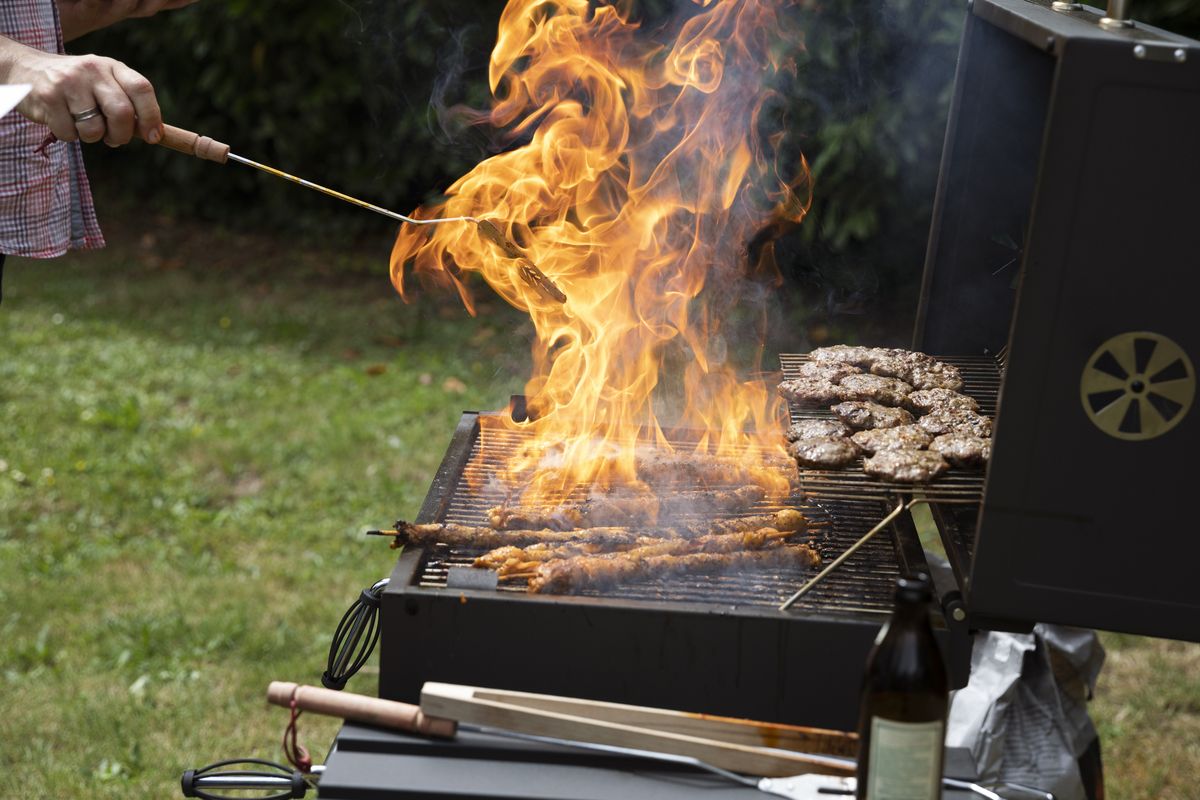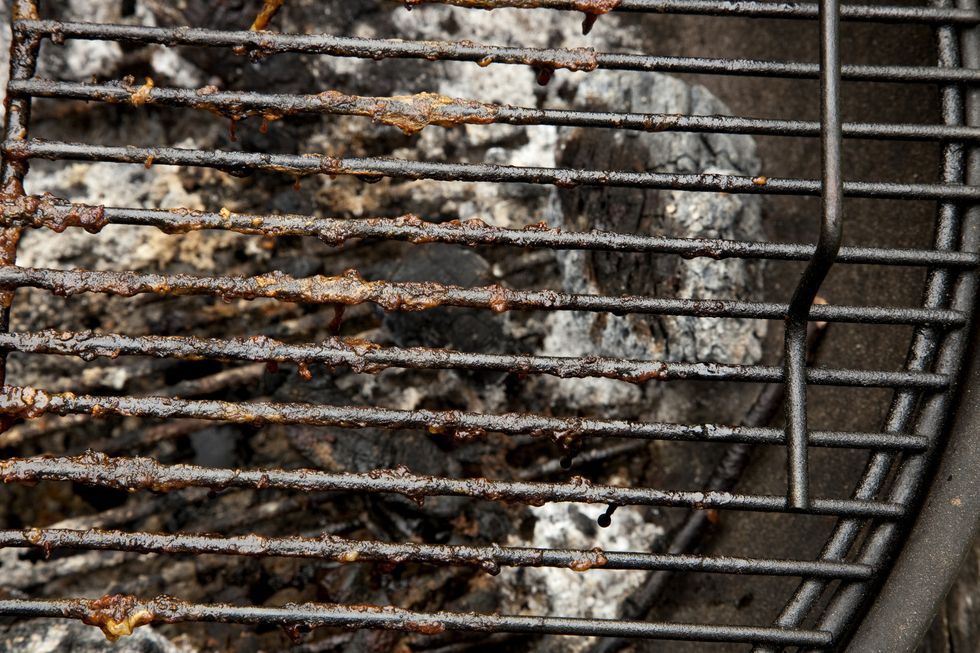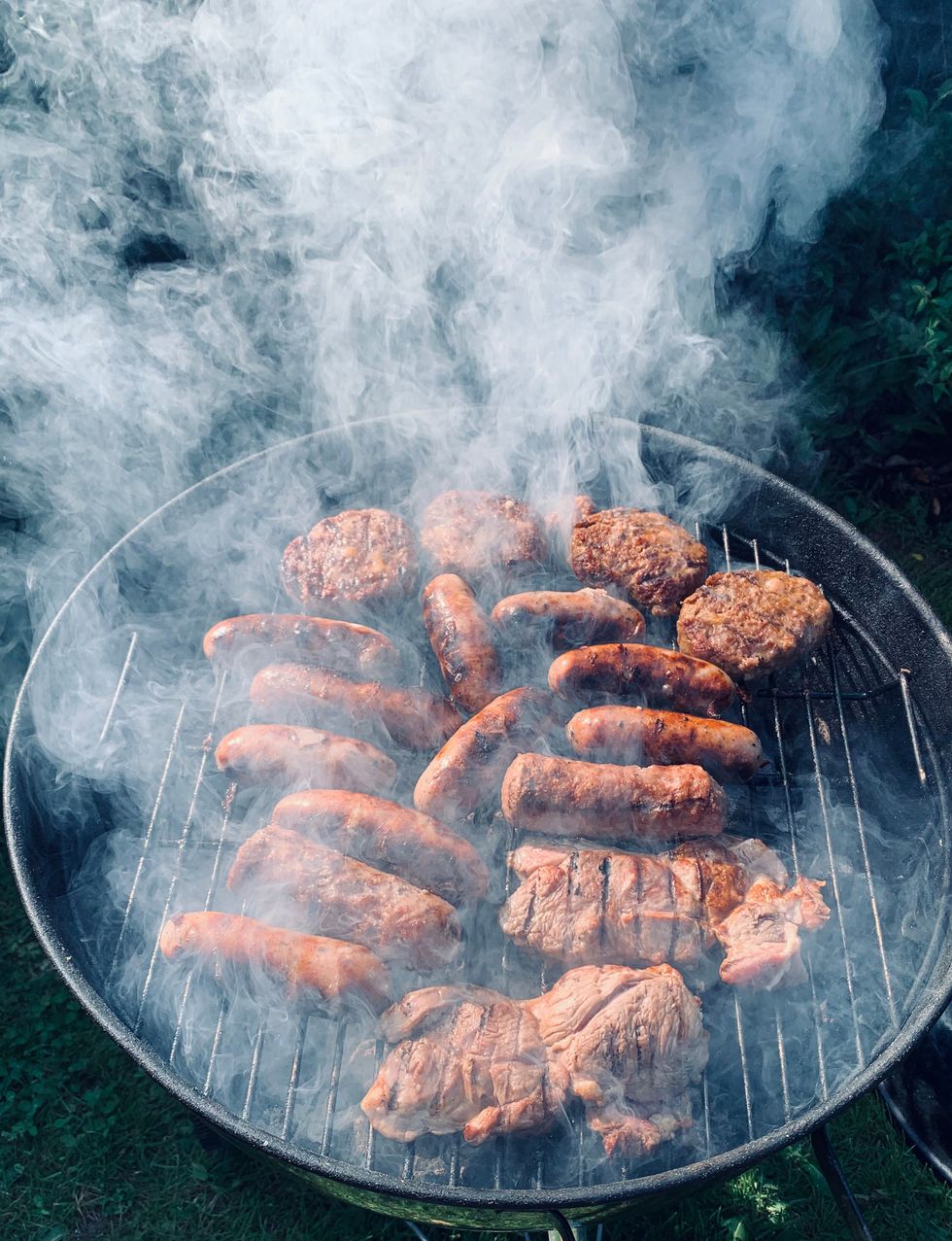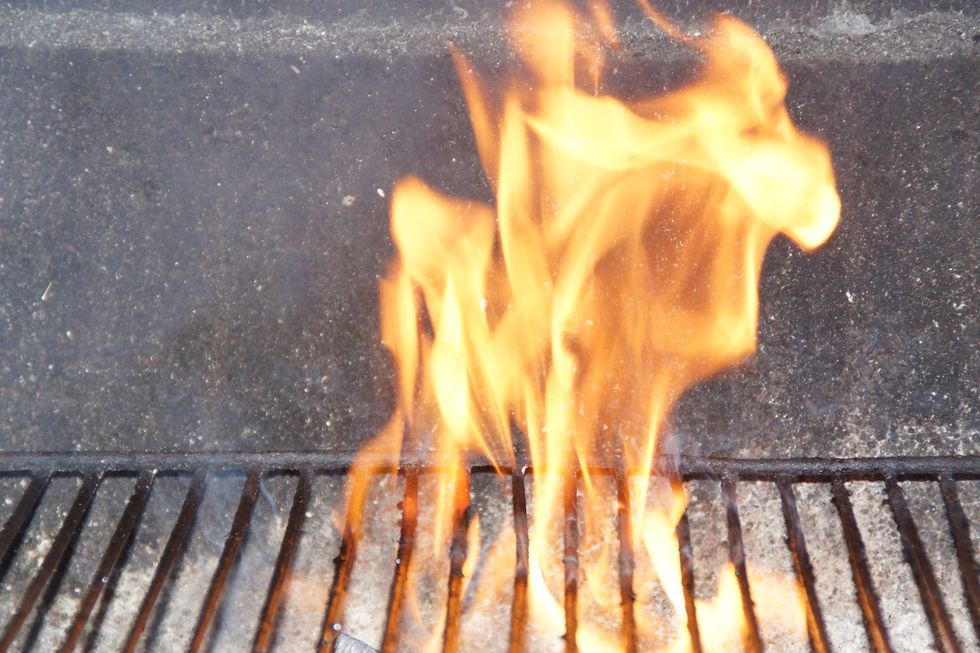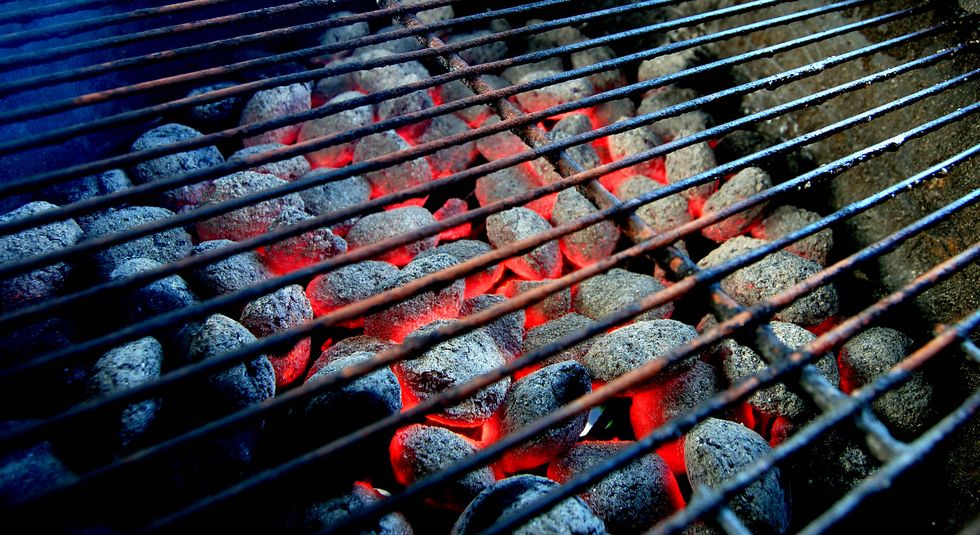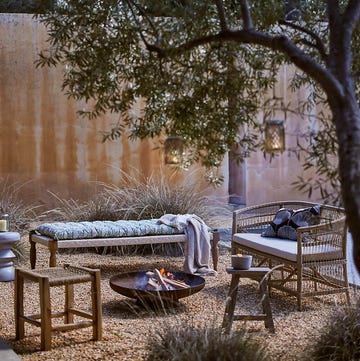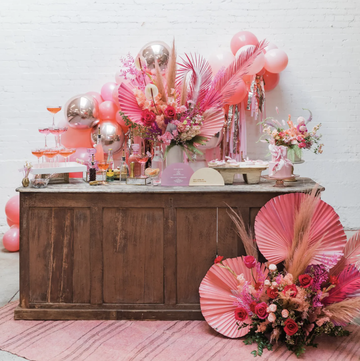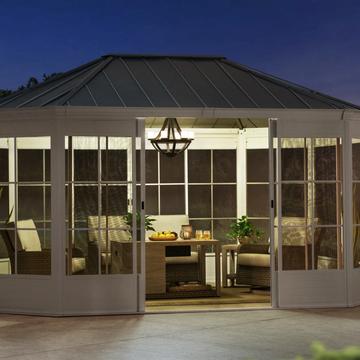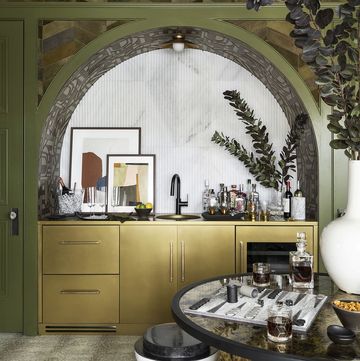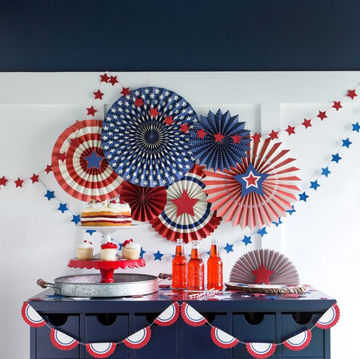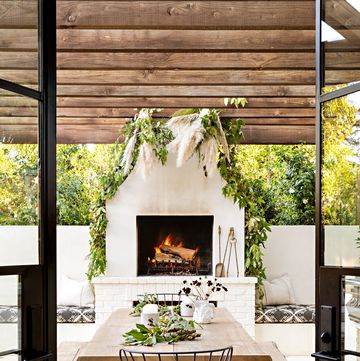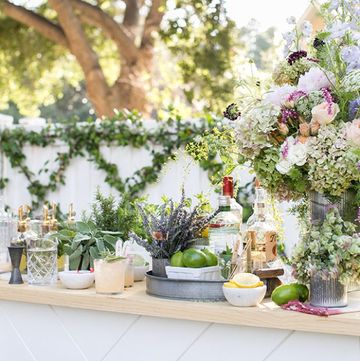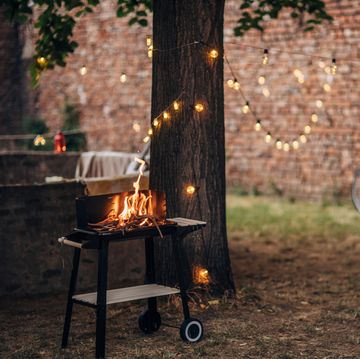July 4 is, without a doubt, the biggest backyard barbecue date of the year. But summer calls for grilling all season long—and with good reason. Barbecues are one of the most fun, most delicious ways to enjoy the good weather. But they're not without their challenges. More important than remembering who wants a burger and who'll take a hot dog is ensuring that you’re grilling with fire safety top of mind.
Cooking over an open flame inevitably comes with some risks. Grills, hibachis, and barbecues are involved in 10,600 home fires every single year, according to the National Fire Protection Agency, and July is the top month for these types of fires. That being said, employing some proper safety precautions can help you minimize fire risks so that your cookout proceeds as planned (and without an urgent visit from your local fire department).
Curious about how your grill can start a fire—and how you can stop it before it starts? Here’s five signs that your grill—or your surroundings—could go up in flames, according to experts ranging from butchers to firefighters.
You’re Grilling Too Close To Your Home
One of the worst grilling safety mistakes you can make is having your grill pushed up against the siding of your home or next to a shed because jumping embers or flames could spark a structure fire.
To minimize risk, designate a specific safe grilling zone that's at least 10 feet away from your home, deck rails, shed, or other structures, suggests King Jerome, a Wisconsin firefighter who runs the industry resource site Firehouse Heavyweights. Also make sure there are no tree branches close to your grill.
Jerome also suggests placing your grill on a non-combustible surface like concrete or pavers. Also, he says, make sure that flammable objects like extra propane tanks, paper plates, and stacks of napkins aren't close to your grilling station.
Your Grill is Dirty
A common mistake that backyard barbecue enthusiasts make is not properly cleaning and maintaining their grills, Jerome says. When grease and burnt burger bits are left behind, it means that your grill will cook food unevenly and it can also be an invitation for pests and rodents. But food safety and quality aside, your dirty grill can also be a major fire hazard.
"Built-up grease can ignite, causing flare ups that can lead to uncontrolled fires," he says.
You should clean your grill grates after each use. To get rid of the debris, Jerome recommends using a steel grill brush and soapy water. Don’t forget to clean your grilling accessories regularly, too, like the drip trays because they can also accumulate debris. He suggests referring to the manufacturer's instructions for proper cleaning protocols.
Your Grill Produces Excessive Smoke
Some smoke is normal when you’re grilling; in fact, it's what gives your food that smoky barbecue flavor. But if you start to notice a large, dark plume of smoke originating from your grill, it's problematic, says grilling expert Asim Choudhry, the co-founder of The Halal Butchery.
"If your grill is producing a lot of smoke that is thick and dark, it could be a sign that the grease or fat from previous cooking sessions has accumulated and is at risk of catching fire as grease is super flammable," Choudhry says. Again, this is a sign that your grill is due for a proper cleaning of those grates and the drip tray.
Flames Keep Shooting Up
If a little bit of fat from your steak, bacon, or other meat drips on the coals or the gas burner, it's normal for flare ups to occur. But if you're noticing flames from your grill are consistently shooting up (and higher than usual) or are unevenly distributed across the cooking area, consider it a red flag, says home fire safety expert John Smith, director of the Fire Risk Assessment Network. The culprit could be a grill maintenance issue (like a clogged burner) or a gas leak (more on this below!) or, you guessed it, grease build-up.
Smith's advice: Inspect your grill regularly for any signs of damage, such as worn-out hoses, loose connections, or rusted components.
Also, he says, have a fire extinguisher readily accessible in case the flames get out of control and contact emergency services if needed.
You Smell Gas
Foul odors, like the scent of gas, can indicate a leak, Smith says, which can be extremely dangerous and pose a risk for a fire or explosion.
The National Fire Protection Agency (NFPA) recommends checking your grill tank house for leaks before using it for the first time each year with the soapy water test.
Charbroil, a grilling resource, has a tutorial on how to do the test: Mix a 50/50 solution of water and liquid dish detergent and put the solution in a dish or spray bottle. Use a spray bottle, clean sponge, or paintbrush to spray or brush the soapy solution onto the gas valve, the hose, and the regulator. If there’s a gas leak, soap bubbles will form; if there's not, there won’t be any bubbles.
Here's what the NFPA says to do next: "If your grill has a gas leak, by smell or the soapy bubble test, and there is no flame, turn off both the gas tank and the grill. If the leak stops, get the grill serviced by a professional before using it again. If the leak does not stop, call the fire department."
Smith also says it's important to safely store your propane tanks. "Keep them in a well-ventilated area outdoors, away from direct sunlight, high temperatures, and open flames," he says.
You're Not Letting Coals Cool Completely
Got a charcoal grill? They require extra care due to the fact that you'll be handling hot coals, Smith says. Always allow the coals to cool down completely before disposing them in a metal container that’s designated for ash disposal, he says, and keep that container away from combustible materials (i.e. like wood, paper, oil, cleaning solvents) and never store it indoors.

Brittany Anas is a former newspaper reporter (The Denver Post, Boulder Daily Camera) turned freelance writer. Before she struck out on her own, she covered just about every beat—from higher education to crime. Now she writes about food, cocktails, travel, and lifestyle topics for Men’s Journal, House Beautiful, Forbes, Simplemost, Shondaland, Livability, Hearst newspapers, TripSavvy and more. In her free time, she coaches basketball, crashes pools, and loves hanging out with her rude-but-adorable Boston Terrier that never got the memo the breed is nicknamed "America’s gentleman."
